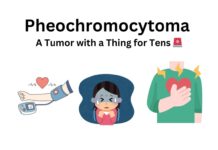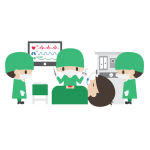Complications of Myocardial Infarction Mnemonic: Unmasking the Darth Vader within Cardiology
In a galaxy not so far away, within the intricate realm of cardiology, resides a powerful and menacing force known as Myocardial Infarction (MI), commonly referred to as a heart attack. Just as the Galactic Empire sought to assert control over the galaxy, MI seeks to disrupt and cause damage to the delicate balance of the cardiovascular system, leaving a wake of devastation in its path. In our quest to understand and combat the insidious effects of this cardiac affliction, we turn to the iconic figure of Darth Vader to serve as our savior medical mnemonic, guiding us through the treacherous terrain of myocardial infarction complications.
Much like the dark and imposing figure of Darth Vader, myocardial infarction can cast a long shadow over a patient’s overall well-being. As we all understand that M.I occurs when a portion of the heart muscle is deprived of oxygen due to a blocked blood vessel, typically caused by a vagabond blood clot. The consequences of this disruption to normal blood to myocardial tissue extend far beyond the initial event, echoing the ripples of chaos triggered by Darth Vader’s presence.
Complications of Myocardial Infarction Mnemonic
Alright, so now without any further ado, let us explore the various complications of myocardial infarction, each represented by a facet of Darth Vader’s formidable persona.
| Letter | Complication |
|---|---|
| D | Death (most commonly Ventricular Fibrillation > occurs within the first few days after M.I and is considered an important cause of death before reaching the hospital) |
| A | Arrhythmia |
| R | Rupture (ventricular wall/septum/ papillary muscles > occurs after 2-7 days) |
| T | Tamponade |
| H | Heart failure (acute or chronic) |
| V | Valve disease |
| A | Aneurysm of Ventricles |
| D | Dressler’s Syndrome (an autoimmune phenomenon, that occurs several weeks following a heart attack) |
| E | Thromboembolism (mural thrombus) |
| R | Recurrence/ mitral Regurgitation |
That’s it. We hope that you find this mnemonic for myocardial complications useful in your day-to-day patient encounters.
Happy learning, folks! 🙂

![Complications of Myocardial Infarction Mnemonic [DARTH VADER] Complications of Myocardial Infarction Mnemonic](https://www.medicosrepublic.com/wp-content/uploads/2023/08/Complications-of-Myocardial-Infarction-Mnemonic-DARTH-VADER-696x583.jpg)



![Carcinoid Syndrome Mnemonic [Easy-to-memorize] Carcinoid Syndrome Mnemonic](https://www.medicosrepublic.com/wp-content/uploads/2024/08/Carcinoid-Syndrome-Mnemonic-Easy-to-memorize-218x150.jpg)

![Stages of Neurocysticercosis Mnemonic [Vegans Can’t Get Neurocysticercosis] Stages of Neurocysticercosis Mnemonic](https://www.medicosrepublic.com/wp-content/uploads/2023/08/Stages-of-Neurocysticercosis-Mnemonic-Vegans-Cant-Get-Neurocysticercosis-1-218x150.jpg)
![Strabismus Surgery: Innovative and Classic Approaches 1st Edition PDF Free Download [Direct Link] Strabismus Surgery Innovative and Classic Approaches 1st Edition PDF](https://www.medicosrepublic.com/wp-content/uploads/2022/05/Strabismus-Surgery-Innovative-and-Classic-Approaches-1st-Edition-PDF-Free-Download-150x150.jpg)
![The Virgin And The Gipsy PDF Free Download [Direct Link] The Virrgin And The Gipsy PDF](https://www.medicosrepublic.com/wp-content/uploads/2023/05/The-Virrgin-And-The-Gipsy-PDF-150x150.jpg)
![Emergency Psychiatry PDF Free Download [Direct Link] Emergency Psychiatry](https://www.medicosrepublic.com/wp-content/uploads/2023/06/Emergency-Psychiatry-1-150x150.jpg)
![First Aid for the Surgery Clerkship 3rd Edition PDF Free Download [Direct Link] First Aid for the Surgery Clerkship 3rd Edition PDF](https://www.medicosrepublic.com/wp-content/uploads/2019/05/First-Aid-for-the-Surgery-Clerkship-3rd-Edition-PDF-150x150.jpg)
![Clinical Emergency Radiology 2nd Edition PDF Free Download [Direct Link] Clinical Emergency Radiology 2nd Edition PDF](https://www.medicosrepublic.com/wp-content/uploads/2023/06/Clinical-Emergency-Radiology-2nd-Edition-PDF-150x150.jpg)
![Critical Thinking Skills For Dummies 1st Edition PDF Free Download [Direct Link] Critical Thinking Skills For Dummies 1st Edition PDF](https://www.medicosrepublic.com/wp-content/uploads/2023/02/Critical-Thinking-Skills-For-Dummies-1st-Edition-PDF-Free-150x150.jpg)
![USMLE Step 2 CK QBook 6th Edition PDF Free Download [Direct Link]](https://www.medicosrepublic.com/wp-content/uploads/2022/06/USMLE-Step-2-CK-QBook-PDF-1-696x365-1-150x150.jpg)
![Physiology at a Glance 4th Edition PDF Free Download [Direct Link] Physiology at a Glance 4th Edition PDF](https://www.medicosrepublic.com/wp-content/uploads/2019/02/Physiology-at-a-Glance-4th-Edition-PDF-Free-Download-150x150.jpg)
![You Are Not So Smart PDF Free Download [Direct Link] You Are Not So Smart PDF](https://www.medicosrepublic.com/wp-content/uploads/2023/05/You-Are-Not-So-Smart-150x150.jpg)
![Investing For Dummies PDF Free Download [Direct Link] Investing For Dummies PDF](https://www.medicosrepublic.com/wp-content/uploads/2023/03/Investing-For-Dummies-PDF-1-150x150.jpg)




